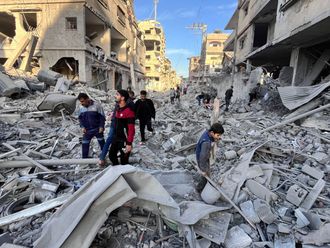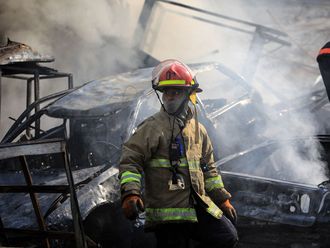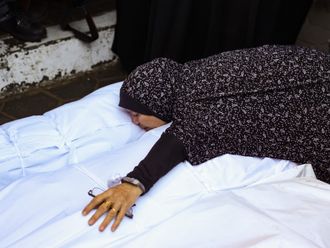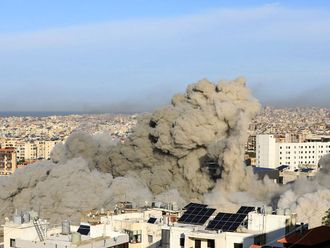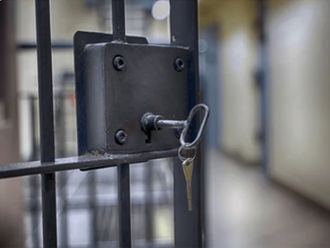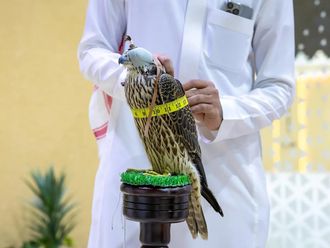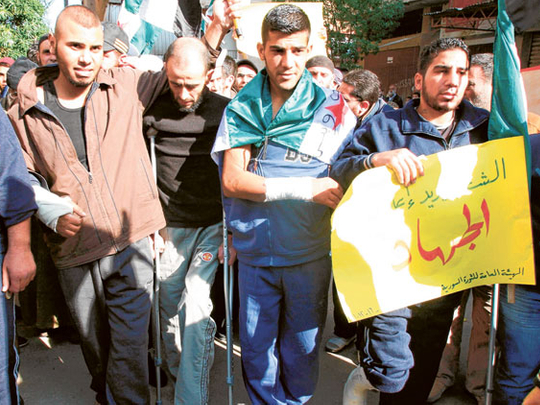
Tripoli, Lebanon: A small charity-run medical centre in this northern Lebanese city is quietly providing health care to a rising number of Syrians, civilians and combatants alike, who have been wounded in the nine-month confrontation against Syrian President Bashar Al Assad's regime.
Many of those recovering in here are from Qusayr, a town of some 44,000 residents lying five miles north of Lebanon and close to the flashpoint city of Homs. Their accounts paint a grim portrait of a town under siege by Syrian security forces with no electricity, no telephone communications, and dwindling food supplies - illustrating the perils that many Syrians face as the Al Assad regime cracks down on an increasingly violent uprising.
Abu Ahmad, an engineer's assistant, was hit in both legs by machine gun bullets when leaving a mosque after prayers to join in a demonstration. "They shot at us as we were coming out of the mosque. I was hit by three bullets in the legs," the thickly bearded man says, lying in his hospital bed. "We were only asking for our freedom, but they consider us terrorists."
Border crossing
Bystanders attempted to give him medical assistance but he had to wait for four hours until it grew dark before he could risk the journey to the Lebanese border. The bullets had shattered a knee cap and a bone.
"They gave me painkillers and wrapped me in a blanket and placed me in the back of a truck. We moved from village to village in the darkness and then crossed the border where the Red Crescent was waiting for me," he says.
A floor of the Tripoli hospital has been turned over to Syrian casualties who are forced to undertake the hazardous journey across the border with Lebanon that is patrolled by army troops and laced with land mines.
"We are receiving a lot of people. The rate of casualties is increasing," says Abu Bashir, a volunteer who helps coordinate the treatment of casualties and, like others interviewed for this article, used a pseudonym due to the sensitive nature of the centre's work.
Indeed, the refugees are not guaranteed safety even once they cross the border.
Syria exerts a pervasive influence in Lebanon through a network of Damascus-backed allies and a sympathetic government in Beirut.
Several Syrians have been abducted in Lebanon since the uprising began in mid-March, and anti-Assad regime activists are forced to live in hiding, moving from one safe house to another.
Lack of assistance
Some 5,000 Syrian refugees are scattered across northern Lebanon, many forced to rent accommodation or stay with friends and relatives given the lack of assistance from the Lebanese state. Turkey, in contrast, has established a number of camps along its southern border with Syria - where as many as 12,000 Syrian refugees have crossed - and is catering to the needs of those in the country.
Most of the casualties being treated at the medical centre are from Syrian towns and villages close to the Lebanon-Syria border.
Authorities at the medical centre say they expect to receive many more casualties from Syria in the coming days and weeks and have drawn up plans for temporary extra accommodation on the roof.
But they worry that the Lebanese authorities could place pressure on the hospital management to stop receiving Syrian casualties. The chief doctor said that Lebanese military intelligence had wanted to establish an office in the centre, but the hospital refused.
— Christian Science Monitor


